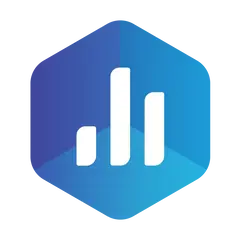Discover Your Powerful Databox Alternative
Whatagraph offers an easy-to-use, all-inclusive platform to connect, organize, visualize, and share marketing data with excellent support and automation features. As a Databox alternative, Whatagraph allows you to create, edit, and share multi-channel dashboards and reports, display ad creatives, and save hours on marketing data tasks.
- 55+ marketing channels
- Live chat customer support
- Unlimited customization and storage











3 Reasons to Choose Whatagraph as Your Databox Alternative
More freedom to organize your data
Whatagraph has multiple data organization features that are missing in Databox. It enables you to blend, group, unify, and aggregate your data. By organizing your data, you can make your reports easier to analyze and read, get insights faster, and engage your clients more.
Visualizations are versatile and easier to build
Databox has a time-consuming process of switching between multiple dashboards and looping them together. There’s even a separate presentation builder for reports. Whatagraph, however, provides one intuitive environment to build and share reports and dashboards.
Overall faster platform with multiple time-saving features
No matter how many tabs, pages, or widgets you have, Whatagraph will handle it without downtime or slowing down. You can save and reuse almost anything as a template from a whole report down to a single calculation. Link multiple dashboards or reports to one template and edit them all at once.
A One-stop Shop Alternative to Databox
A single platform for all your marketing reporting and data needs. Clear pricing plans with no hidden limits.
 | ||
|---|---|---|
| Connect | ||
| Native integrations | ||
| Historical data | ||
| Consistent refresh rate | ||
| Organize | ||
| Granular data analysis | ||
| Unify and rename dimensions and metrics across all dashboards | ||
| Group and aggregate data | ||
| Blend data from multiple channels to use as a new blended source | ||
| Visualize | ||
| Visual customization | ||
| Media widgets | ||
| Reports and dashboards management | ||
| Linked templates | ||
| Share | ||
| Automated reporting | ||
| Data export | ||
| Data transfers to a warehouse | ||
| General points | ||
| Live chat support | ||
| Speed and stability | ||
Databox Pros and Cons – What Do Users Say?
The software is both intuitive and aesthetically pleasing. Easily view your data from Analytics, Google Ads, social media, etc. all in one spot. the feature I find most valuable is the ability to set alerts for goals. This reminds me n my team of our progress and where we stand in regards to our goals.
I think the only thing that can be improved with Databox is perhaps allowing an unlimited amount of dashboards for accounts or a higher amount of dashboards with each account subscription they offer.
As a data-nerd, I love to incorporate a lot of charts, however there is a limit per page that I seem to hit rather often.
One exceptional feature of Databox is its alert system, which alerts us right away to any anomalies or noteworthy changes in the data. Being able to keep an eye on important metrics in real time has made us much more responsive.
I wish the dashboards were bigger so i could fit more information. or i wish i could connect them and make it so i can scroll to see the different dashboards. but really i wish they could be organized better. it's nice that people can organize the way they want but i wish by default the order was what i set. i also wish there were folders so i could group the marketing dashboards all in 1 spot then give everyone access to that folder instead of one by one.
Frequently Asked Questions
Is Whatagraph a data integration tool?
Yes, Whatagraph has data integration functionality but it’s a much more capable platform you can use to connect data from multiple marketing sources, organize the data, visualize it in interactive dashboards or automated reports, and schedule report sharing with clients or stakeholders.
What integrations does Whatagraph support?
Whatagraph supports a wide range of web-based data analytics platforms, including Google Analytics, social media like Facebook and YouTube, self-service ad platforms like StackAdapt, and CRMs like HubSpot and Salesforce.
Is Whatagraph a worthy Databox competitor?
Yes, Whatagraph is a worthy Databox competitor. It gives you a single environment to create, edit, and share reports and dashboards, while in Databox you need to use separate builders. Unlike Databox, where you need to use long grids or lists with querying and tagging, Whatagraph allows you to effortlessly manage your reports by creating as many folders as you like. Finally, Databox doesn’t allow you to export data to a data warehouse for safekeeping, while Whatagraph gives you an option to move all your data to Google BigQuery with a few simple steps.
How does Databox pricing work?
Databox pricing has four levels: 1) Plan, 2) Data Source Connections, 3) Add-Ons, and 4) Services.
Your subscription cost is based on your plan + the number of data source connections in your account + add-ons and recurring services.
The first three data source connections are free on all plans. Beyond that, you need to pay for each new connection.
As a viable Databox alternative, Whatagraph has all native integrations including BigQuery and Google Sheets available in all pricing plans, so there’s no limit to connecting any data source you have.
Are Databox reviews mostly positive or negative?
Databox reviews are mainly positive, with users praising the dashboard customization, intuitive UI, and alert feature. As Databox disadvantages are concerned, most users mention discrepancies in metrics between the source and dashboards, as well as the number of dashboards allowed per account.















